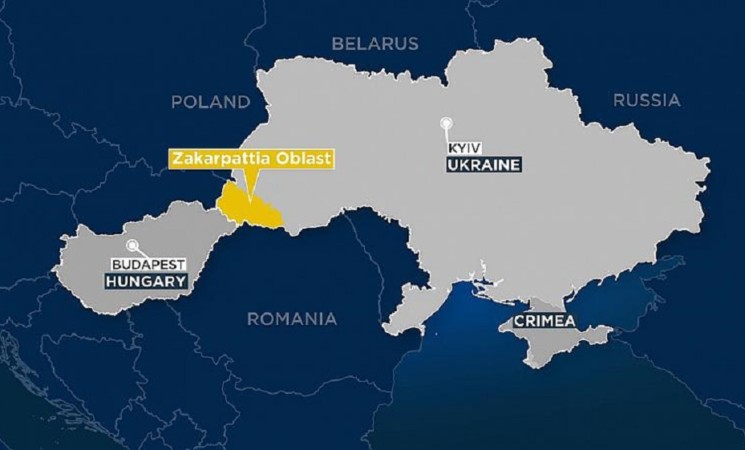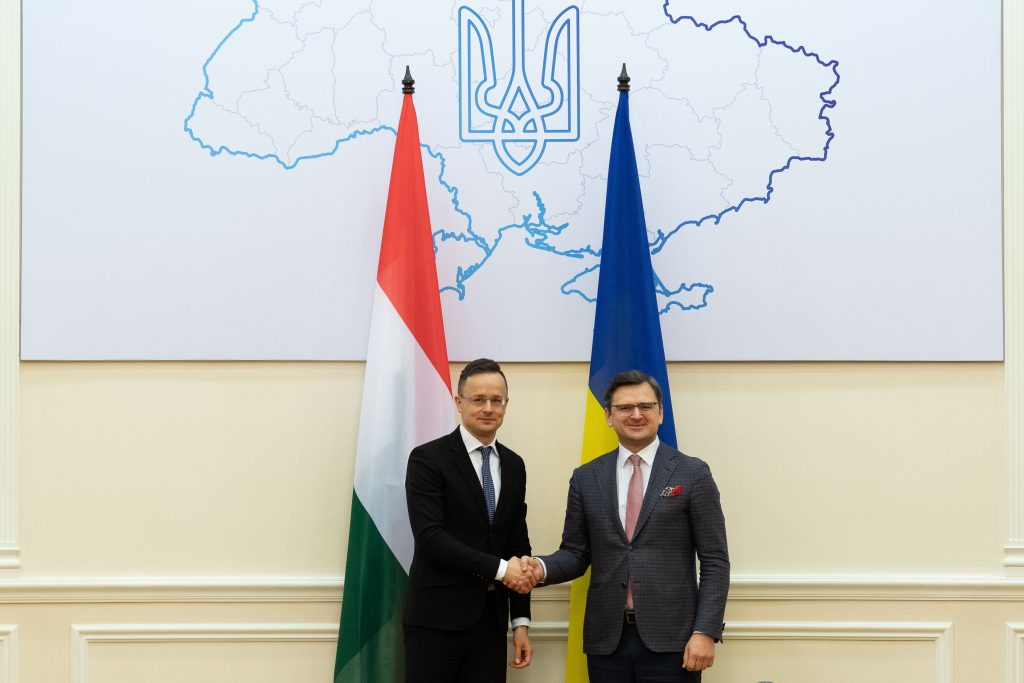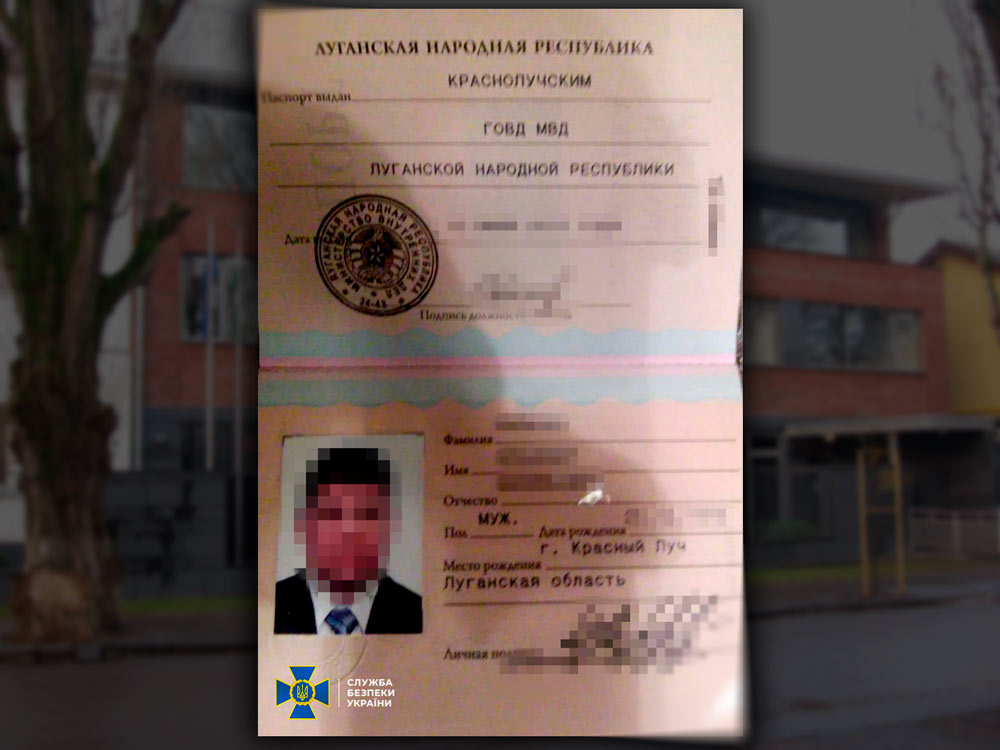Refusal to allow a Hungarian official to enter Ukraine stoked political tensions which were already riding high. But what are the repercussions for Ukraine’s cooperation with the European Union and NATO?
In 2019, when Volodymyr Zelenskyy was elected to the office of the Ukrainian President, high hopes were placed on the new administration to resolve some of the bottlenecks of Ukrainian foreign policy which dated from his predecessor Petro Poroshenko’s presidential term. Topics including Ukrainian-Hungarian disputes over the Hungarian minority in Transcarpathia and their rights were often cited as areas of potential compromise. However, the most recent escalation around Ukraine’s local elections in October again highlighted the gap between respective national interests, sparking conflict over what Ukraine considered undesired external interference in domestic political processes, and Hungary’s links with its minority group in Ukraine. Bilateral relations have been tense since 2010, but deteriorated rapidly after 2014 when Prime Minister Viktor Orban openly questioned Ukraine’s state sovereignty and territorial integrity when commenting on the status of the southwestern area of Zakarpattia or distributing passports to the Hungarian community representatives.
The Foreign Ministers Dmytro Kuleba and Peter Szijjárto met in Kyiv over the summer of 2020 alongside a session of the Ukrainian-Hungarian intergovernmental economic commission, which gathered for the first time in seven years. Although this event was welcomed by both sides, the meeting did not help surmount differences in opinions on state sovereignty, territorial integrity and the rights of national minorities in Ukraine. These obstacles arose despite the two nations underscoring their mutual interest regarding issues such as energy, economic development and cross-border ties.
Two contrasting perspectives
From Ukraine’s point of view, some of the long-term issues are immensely sensitive due to the ongoing war conflict in Donbas and illegal occupation of Crimea and the City of Sevastopol by Russia. This backdrop frames the country’s stance on national security, decentralization and the schooling rights of national minorities. Ever since 2014, Ukraine has been involved in the complex process of building modern Ukrainian nationhood, focusing on language and culture as well as de-Russification and the decommunization of the public sphere.
From Budapest’s point of view, these issues are respected but not always fully understood. Meanwhile, they often take a backseat to its own domestic politics and the rights of Hungarian minorities in neighboring countries. What makes the whole situation even more complicated is Russian propaganda and its hybrid engagement in such conflicts, as was recently showcased in a study by Political Capital looking into the case of Hungary, Slovakia, Poland, Romania, Ukraine and Serbia.
Ongoing since 2017, the Ukrainian-Hungarian dispute has an international dimension. Hungary has been angered by two planks of Ukraine’s legislation, namely its laws on education and language, which promote the Ukrainian language in the public sphere and which Budapest views as detrimental to its community living in Ukraine. As a result, Hungary has tried to paralyze its neighbor’s relations with the West. This is outlined in the 2020 Bertelsmann Transformation Index (BTI) Country Study on Hungary
:
“Hungary has let its disagreement over the controversial Ukrainian education law affect cooperation between North Atlantic Treaty Organization (NATO) and Ukraine, blocking high-level cooperation since March 2017, ignoring criticism from the United States and other NATO allies. This policy has seriously hampered political cooperation between the alliance and Ukraine.”
- Also read: Russian as a minority language in Ukraine vs Russian as Putin’s weapon: Is there a compromise?


The resolute Hungarian stance has also tainted Ukraine’s relations with the European Union, with the recent diplomatic spat bringing the bilateral dispute to the European Parliament and the Commission, where the Hungarian representatives – primarily associated with the ruling Fidesz party – tried to elevate the tensions to the EU level.
Ongoing argument overshadows Ukraine’s options for international cooperation
Diplomatic efforts have tried to settle the long-standing dispute but, for now, the mistrust between Ukraine and Hungary looks set to stay. However, Western allies of both Hungary and Ukraine might be able to offer a way out of the current stalemate. Many in Europe expect Joe Biden’s administration to spearhead a stronger push in the US eastern policy. This could include paying more attention to Ukraine and, together with European and V4 partners, also forge a more trust-inspiring environment for the two parties to finally settle their mutual disputes.
The first step in this direction is, in any case, the clear recognition that Ukraine’s European aspirations and its foreign and security policy orientation towards the West, including the EU and NATO, should not be called into question by a single country, such as Hungary. The Western approach to its allies, such as Ukraine or North Macedonia, should be rendered more flexible and impossible to question. Both the new US administration, as well as the EU and the NATO members, should do everything possible to make that happen. At the same time, dialogue should be continued on finding the best compromise for different communities living in Ukraine, for which the international community, including the Council of Europe and OSCE, can provide help and ready-made solutions that might, with sufficient political will, accommodate both Hungary and Ukraine.
A version of this article was first published on https://www.globalpolicyjournal.com/blog/06/01/2021/ukraine-hungarian-relations-tale-mounting-mutual-mistrust 
This article was reprinted from the BTI project website with permission
Read more:
- Ukraine adopts law expanding scope of Ukrainian language
- Russian as a minority language in Ukraine vs Russian as Putin’s weapon: Is there a compromise
- Attack on Hungarian centre in Ukraine: three Poles charged with terrorism in German journalist-planned plot
- Tensions flare after Hungarian consul caught secretly issuing passports in western Ukraine
- Sanctions against Russia don’t damage the EU. But Italy, Hungary, and Austria might try to get them scrapped
- Hungary’s Jobbik Party shows itself to be Putinist, not Hungarian nationalist
- How Hungary became a weapon of Russian disinformation
- The struggle for Carpatho-Ukraine (1938-1939), or how WWII started for Ukrainians





